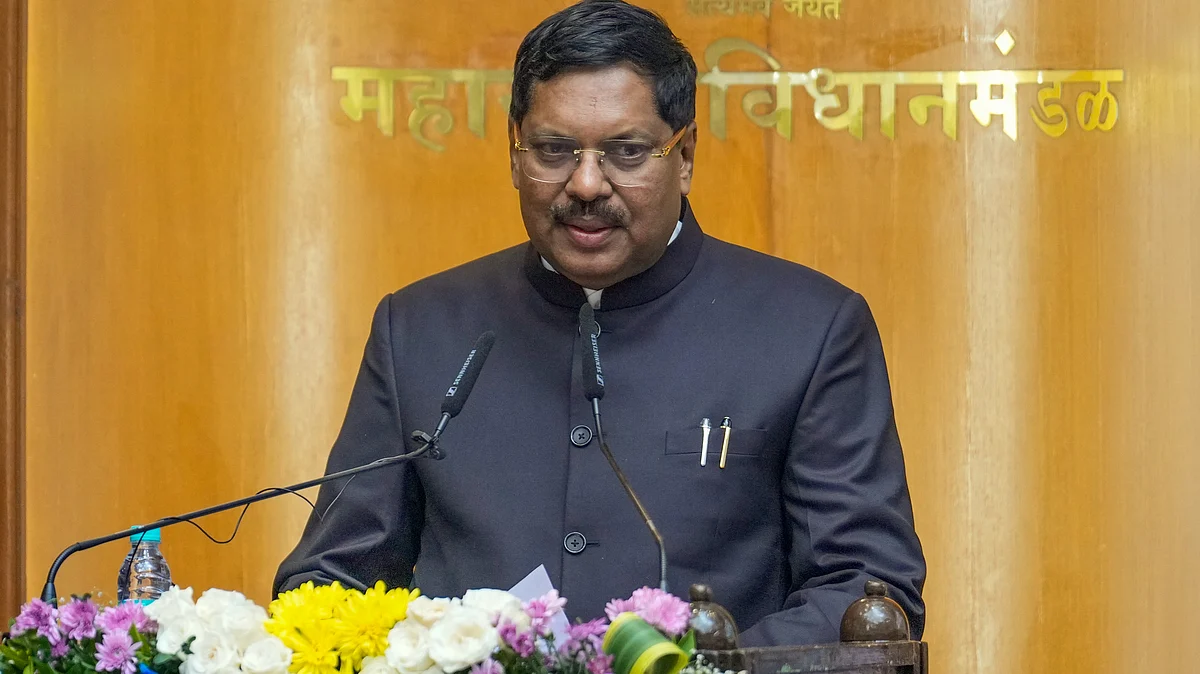Nation
Non-judicial members of tribunals averse to passing orders against govt, must reflect: Chief Justice Gavai
Chief Justice said litigants appear in court with faith that they will receive justice, and it is the duty of those in judicial roles to uphold this trust both inside and outside the courtroom

Chief Justice of India B.R. Gavai on Saturday raised concerns over the conduct of some non-judicial members of tribunals, typically former bureaucrats, stating that they appear hesitant to pass rulings against the government. He urged such members to reflect on their approach.
Speaking at the 10th All India Conference of the Central Administrative Tribunal (CAT) 2025 in New Delhi, CJI Gavai addressed issues impacting the tribunal system and broader justice delivery in India. The conference was attended by Union Law Minister Arjun Ram Meghwal and Minister of State in the Prime Minister’s Office, Jitendra Singh.
The CJI highlighted that administrative tribunals function differently from courts, occupying a distinctive space between the executive and the judiciary. He noted that while some members are appointed from judicial backgrounds, many are former civil servants.
“This diversity is a strength, combining legal acumen and administrative experience,” he said, but added that it also necessitates consistent training and clear standards of eligibility and conduct.
"Judicial members would benefit from exposure to the nuances of public administration, while administrative members would require training in legal reasoning. I should not be taken otherwise because nowadays you don't know what you say and what comes on social media.
But as a judge, I have personally noticed that some of the administrative members -- some of the judges coming from the administration... do not forget that they come from the administration and... are averse to passing any order which will be against the government. So I think they should reflect on that..." the CJI stated.
He advocated for regular workshops and training programmes to help tribunal members improve their competence and confidence.
Published: undefined
CJI Gavai also called for a uniform appointment process with well-defined eligibility criteria to ensure transparency and build public trust. He noted that inconsistent practices raise concerns of arbitrariness.
Another issue raised was the high number of appeals following tribunal decisions. This concern was also mentioned by Law Minister Meghwal. The CJI observed that appeals continue to reach the Supreme Court even when both the CAT and high courts have given concurrent findings.
He attributed this trend to bureaucrats being risk-averse and attempting to shift the responsibility to the judiciary.
"If you can have some central agency to filter as to whether the matter really deserves to be appealed or not, that will greatly reduce the pendency of the matters before the court. All of us know that the central government is the biggest litigant before the Supreme Court, as well as the high courts," he said.
He further remarked that while the right to appeal is central to justice, prolonged litigation often undermines the very purpose of setting up tribunals. In many cases, he said, government employees retire before their cases are fully resolved.
Need for better judicial demeanour
CJI Gavai also pointed to the need for uniform service conditions for tribunal members, urging the government to take urgent steps.
"If the government desires that the retired judges of the high court and good judicial officers should adorn the offices of the tribunals, a quick look, or a quick relook at the service conditions of the chairperson and the members of the tribunals is I think the need of the day," he said.
Published: undefined
The CJI was also critical of the conduct of some newly appointed judges and judicial officers, noting that inexperience often leads to inappropriate courtroom behaviour.
He referred to a recent Supreme Court decision that mandates three years of legal experience before appearing for the judicial service examination.
He said data collected from states and high courts showed that fresh law graduates without courtroom exposure often became overbearing from day one, sometimes even intimidating senior lawyers.
Referencing a recent incident where a young lawyer fainted in a high court after being reprimanded by a judge, the CJI remarked: "As judges, we must also accept the position that both judges, as well as the lawyers, are like two wheels of the golden chariot of justice. None superior or none inferior, unless both the judges and the lawyers work together, the institution of administration of justice, which exists for the last citizen of this country, cannot function properly."
He said litigants appear in court with faith that they will receive justice, and it is the duty of those in judicial roles to uphold this trust both inside and outside the courtroom.
"I urge everyone to honour this responsibility not just within the official spaces but outside as well. In many ways, our roles are like those of a leader who will shape the lives of several thousand citizens through the outcomes that we determine..." he said.
Attorney General R. Venkataramani also addressed the gathering, noting that tribunals help significantly in reducing litigation pendency.
With PTI inputs
Published: undefined
Follow us on: Facebook, Twitter, Google News, Instagram
Join our official telegram channel (@nationalherald) and stay updated with the latest headlines
Published: undefined